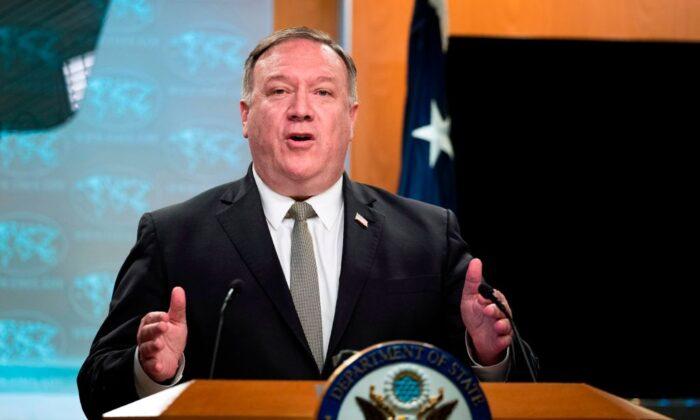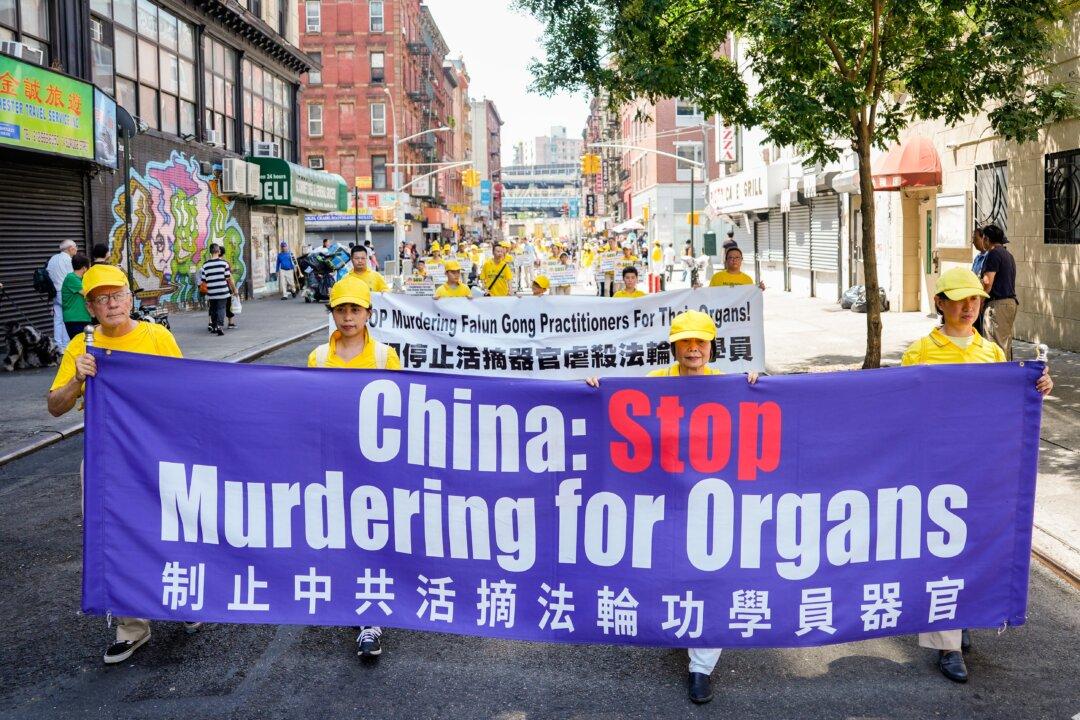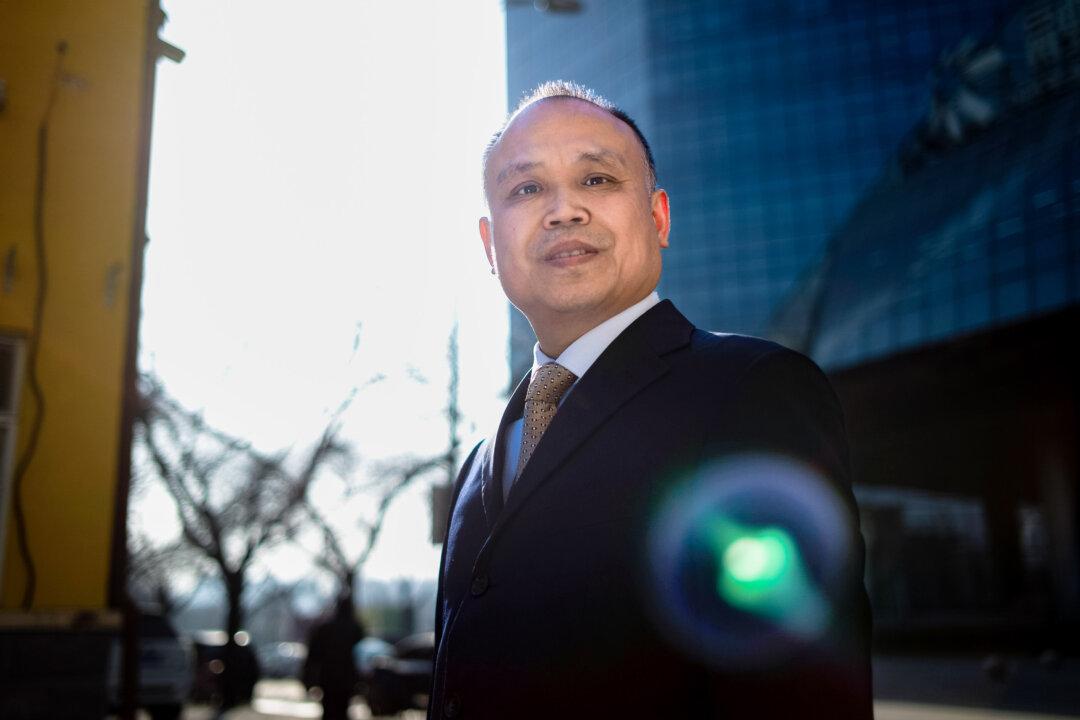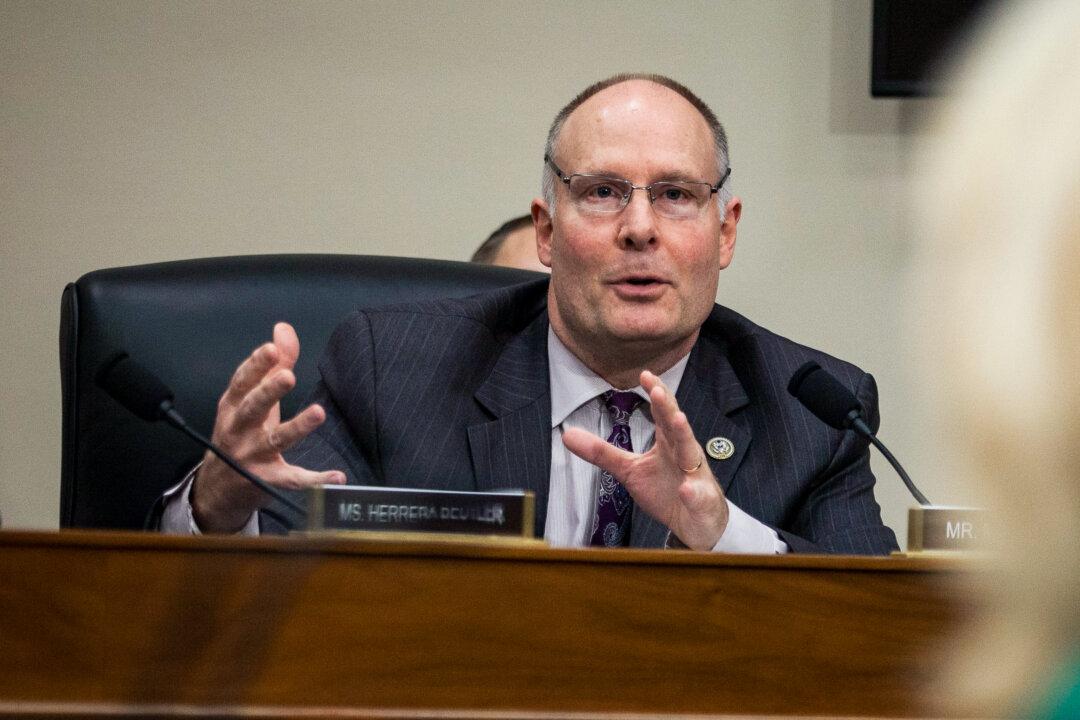Beijing’s crackdown on human rights lawyers and activists five years ago is drawing renewed international criticism, as several people who were arrested at the time remain subject to persecution.
On July 9, 2015, the Chinese Communist Party (CCP) rounded up hundreds of lawyers and activists across China in a crackdown commonly known as the “709 Incident.” Some remain in prison, while others have been placed under house arrest since their release.
The incident was “designed to intimidate a generation of lawyers and activists from representing or assisting anyone the CCP perceives as a threat to its absolute power,” U.S. Secretary of State Mike Pompeo said in a
statement on July 8, a day before the anniversary of the crackdown.
“It showed the world what it means to govern via ‘rule by law,’ rather than a system based on the rule of law,” he added.
Pompeo denounced the treatment of several lawyers and activists, particularly emphasizing the plight of defense lawyer
Yu Wensheng, who was sentenced on June 17 after a secret trial in China.
Yu defended several victims of the 709 crackdown and was arrested in January 2018. He was charged in April for “inciting subversion of state power”—a catch-all charge Beijing often uses against dissidents.
Yu was sentenced to four years in prison by the Intermediate People’s Court in Xuzhou city in coastal China’s Jiangsu Province.
On June 30, Yu’s wife, Xu Yuan, took to her
Twitter account, saying that she hadn’t received the court verdict, and that she was unable to find out which prison was holding her husband.
Xu demanded the intermediate court uphold the law so that she could appeal her husband’s sentence, and guarantee her right to visit him in prison.
Pompeo also pointed to how lawyer
Li Yuhan was detained without due process;
Wang Quanzhang was detained for years with his family unable to visit him; lawyer
Jiang Tianyong was still under house arrest; and several other lawyers, including
Wang Yu, who have been disbarred after their release from prison.
“The United States urges the PRC to honor its international human rights obligations and commitments,” Pompeo stated.
The European Union (EU) also issued a
statement on the anniversary of the crackdown, asking China to “immediately and unconditionally release, without any restrictions on their movement or work, all lawyers and legal activists imprisoned or persecuted by the authorities for their work before and since the ‘709 crackdown.’”
Meanwhile, the EU especially urged the release of three people: Yu, Li, and activist
Ge Jueping.
“The European Union will also continue to call out any violations of human rights and fundamental freedoms that occur, including under the new
national security law imposed on Hong Kong,” according to the statement.
U.S. lawyers also expressed solidarity with their peers in China and called on the Chinese regime to end its persecution. The New York City Bar Association, in a
statement issued on July 8, said the 709 crackdown was “among the largest and most sustained government-led assaults on the legal profession in recent decades anywhere in the world.”
“The Association condemns the ... continued mistreatment of lawyers who face official actions ranging from physical mistreatment to the denial of their licenses to practice their profession,” according to the statement.
Lawyers
Xie Yanyi, a Beijing-based human rights lawyer, was taken into custody by the city’s police on June 12, 2015. He was formally arrested in January the following year, on the charge of “inciting subversion of state power.” Later, he was held at a detention center in Tianjin city, before being released on bail in January 2017.
In an
interview with the Chinese-language Epoch Times, Xie said that the 709 incident showed how righteousness and moral conscience won’t be defeated by the communist regime.
He explained that Beijing initiated the crackdown five years ago because the regime feared that citizens were learning about the injustices behind legal cases surrounding petitioners and adherents of the spiritual practice Falun Gong—with a growing number of human rights lawyers defending them in court.
Falun Gong, also known as Falun Dafa, is a spiritual practice with meditative exercises and moral teachings based on the principles of truthfulness, compassion, and tolerance. In July 1999, the Chinese regime began a nationwide persecution, and has since thrown thousands of adherents into jails, brainwashing centers, and labor camps, according to the
Falun Dafa Information Center.
“After the 709 incident, the resistance by lawyers and their families, has allowed the world to know about the crimes [committed by the CCP],” Xie said.
During an
online forum on July 7 to commemorate the anniversary, Albert Ho, chairman of the Hong Kong-based China Human Rights Lawyers Concern Group, expressed worry about the future of Hong Kong lawyers under Beijing’s newly enacted national security law.
“Under the CCP’s despotic rule, sweeping crackdowns like the 709 incident will continue to happen. A Hong Kong version of the 709 is likely to happen in the near future,” said Ho, who is also vice chairman of a local organization that supports democracy in China.
Beijing formally implemented the law after ceremonial votes on June 30. The law criminalizes individuals for any acts of subversion, secession, terrorism, and collusion with foreign forces against the Chinese Communist Party, with a
maximum penalty of life imprisonment.






Friends Read Free